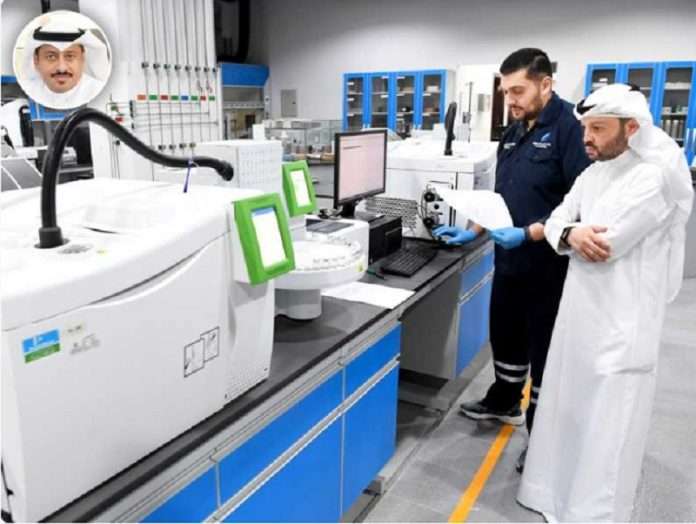With the approaching summer season approaching, the Maintenance Department of the main transmission stations affiliated to the Transportation Networks Sector in the Ministry of Electricity and Water is racing against time to ensure the readiness of the network and the completion of preparations to secure its loads in the summer through the implementation of 72 maintenance programs for which it has prepared 27 working teams affiliated with the department, each of which includes from 6 to 10 engineers and technicians.
Eng Nahar Al-Dhafiri, Director of the Main Transfer Stations Department at the Ministry, told Al-Qabas daily that the department is responsible for about 700 main transmission stations with more than 3,200 electric power transformers, in addition to 160 individual transformer sites in border areas, farms and chalets, whose maintenance programs continue throughout the year as well as emergency teams which work 24 hours a day.
Al-Dhafiri added that the transmission networks sector undertakes the transfer of energy produced by the power generation sector through ground cables and overhead power lines to distribution stations in all the regions, explaining that the administration’s task is to implement everything necessary to secure the work of the main transmission stations by carrying out necessary maintenance, whether maintenance of electrical appliances or devices, protection of transformers, or firefighting devices, as well as civil maintenance and support systems.
He explained that the administration currently has more than 50 maintenance contracts for power stations, with a value of 160 million dinars. These contracts extend for 5 years and include various maintenance works.
He pointed out that the work is not limited to maintenance, as there is equipment that is outdated, and the administration performs two processes of replacement and exchange for it, and that the transmission stations differ in their high voltages from higher effort to lower effort.
Regarding the aging of the stations and the recurrence of fires, Al-Dhafiri explained that comparing the number of faults compared to the number of equipment or feeders connected to the stations, which exceed 52 thousand electric cells, revealed a decrease in the percentage of accidents and serious annual fires.
“We are talking about 6 to 7 annual faults out of a total of 52 thousand feeders and electric cells. This means that the percentage resulting from the breakdown of the insulation of any equipment and the occurrence of a malfunction that causes the station to go out or the occurrence of a fire sometimes represents approximately one in ten thousand, for out of every 10 thousand operating cells, there is one that goes out of service annually, and malfunctions are something that is likely to occur at all power stations globally and often the reasons are beyond the scope of maintenance work.
He indicated that the number of employees in the department exceeds 1,500, including engineers and technicians, and it has a team of male and female engineers who supervise daily follow-up maintenance work, and there is a database for each station that extends for more than 20 years, and it is possible to refer to it and find out what it was subjected to in terms of work.
Al-Dhafiri pointed out that the administration pays great attention to training its cadres, especially obtaining a certificate of validity to operate, which is a level that requires a great effort, as the engineer undergoes tests and courses related to the operation of various network equipment, including transformers and circuit breakers, as well as security and safety procedures, examining equipment and dealing with it, within a system and program.
A certified technician, and after going through all these trainings, is subject to an exam held by a committee whose recommendation is signed by the Undersecretary of the Ministry, to confirm that he has obtained the authority to operate.
He stated from 1988 to 2020, the number of those who obtained a license to operate was 450, and since 2020 until today, there are 200 male and female engineers who obtained that license, and it is expected that by the end of the year the number will reach about 350 male and female engineers, which reflects the large boom in training.
He explained that the Kuwaitization of jobs is a national demand, as the percentage of national cadres in management exceeds 90%, but at the same time, bringing international expertise that raises the level of our national cadres is an urgent requirement for the expertise that international companies possess, so we are keen to train our cadres through the use of global expertise to upgrade With the level of our engineers, and the expertise working with us, there is a great demand for them from all neighboring countries.
Eng Nahar Al-Dhafiri identified five reasons for power failures
— Amateur hunters damaging power lines while hunting for birds with rifles
— Big truck passing near overhead lines
— Contractors’ errors during excavation in places where services are provided to the Ministry
— Bad weather
— The aging of some stations

















